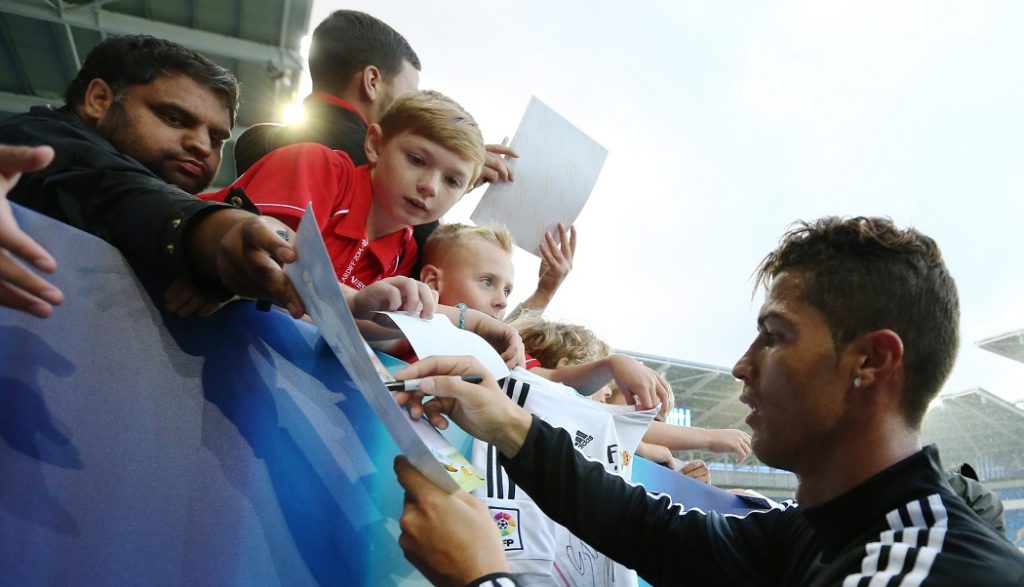Sports stars must retain their mystique amid changing landscape of fan engagement
August 23, 2017
Adam Paker continues to reflect on 20 years in the sports industry, this time focusing on the changing game of fan engagement
Back in the late 1990s, the internet revolution was spreading quickly to the realm of sport. Much of the focus was on the internet’s ability to bring you news and results faster than ever before, as ESPN.com, cricinfo and a plethora of others showed.
Fansites dedicated to individual icons of the time were starting to appear, but the stars themselves were slow to pick up on the power of the net – David Beckham, for example, did not launch an official website until 2007.
The waves of digital change since then have revolutionised the ways for stars to reach out to their fans, and for fans to engage with the stars.
Any self-respecting sports star of today will have a well-presented and carefully curated presence on Facebook and Instagram.
Most potent of all is Twitter, which gives fans an apparently unhindered connection to their star of choice, and the star a direct access to the hearts and minds of fans, wherever they may live.
It is undeniable that this has changed the relationship between the fan and the sports star profoundly.
But let’s not get carried away. The conventional wisdom is that sports stars have become more approachable to their fans, but I would question this.
In reality, much of the Twitter output of a typical superstar is ghost-written and corporate in flavour – more likely to push a brand of apparel than give fans an insight into the inner life of the star.
And whilst Twitter may look like a direct line to the stars, does anyone believe that, say, Cristiano Ronaldo can respond personally to messages from his 57.3m followers?
My secret is dedication. @CR7CrunchFitnes #LiveLifeFit #Fitness pic.twitter.com/NFqlXTe3O2
— Cristiano Ronaldo (@Cristiano) August 18, 2017
Meanwhile, other dynamics – such as galloping salaries for top stars in some sports – serve to make today’s megastars harder for the public to relate to, not easier.
So a gap remains, and I for one think this is no bad thing. The truth is that sport relies on a curious dual relationship by which the top stars seem both approachable and yet superhuman to their fans.
No-one typifies this better than Usain Bolt, who, on the one hand comes across as the kind of laid-back guy you could happily have a drink with, but whose sporting achievements are cast as someone from another galaxy.
Humbled pic.twitter.com/SvFL2LlMKB
— Usain St. Leo Bolt (@usainbolt) August 13, 2017
I am all in favour of the opportunities that the digital age has brought to make sports stars more approachable to their fans. The smartest athletes with the best agents will leverage this.
But for sport to flourish it is important that its greatest proponents also retain their mystique.
Do you want to contribute to iSportconnect? Click here to pitch an idea for an expert column!



